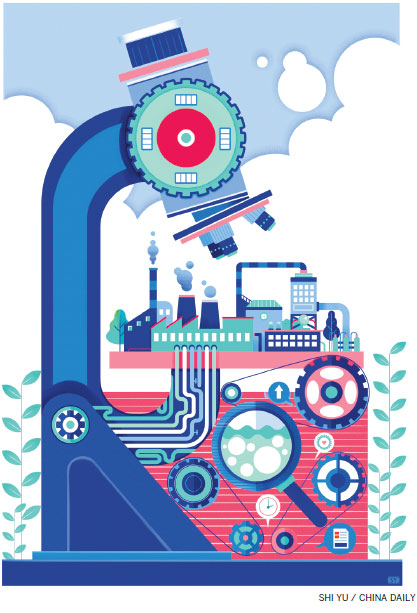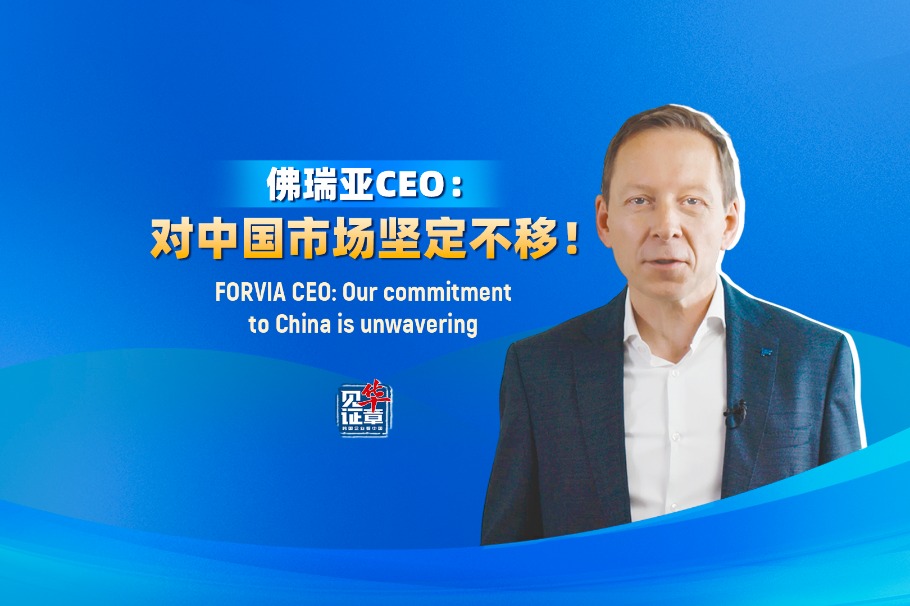Waste permits will put a cap on the nation's polluters

Data collected for new system will help reverse degradation to air, water and soil, expert says
Companies and public institutions will soon need to apply for a new government-issued permit before they can discharge pollutant waste, with restrictions placed on how much they can emit.
The move, announced as part of a pilot plan approved by the Ministry of Environmental Protection last week, is seen as a vital step in efforts to control pollution and improve air, water and soil quality.
According to the plan, which runs to 2020, the permits will be mandatory for industrial enterprises, as well as some public institutions, that are State-financed, have no revenue and cover sectors such as education, science, culture, health and the media.

Enterprises that apply but fail to qualify for a permit will still be monitored by local environmental protection authorities to prevent pollution, the ministry said.
China has witnessed rapid economic development over the past three decades. Yet it has come at a price, as industrial activity has degraded air, water and soil quality nationwide. In key areas, such as the Beijing-Tianjin-Hebei cluster, smog has become a major problem for residents and local authorities.
The new permit - which sets a ceiling on how much waste an enterprise can discharge into the atmosphere or waterways over a certain period - is part of wider efforts by the central government to build a strict, integrated system that controls pollution nationwide.
"These permits must be issued to all potential polluters, that's the first step," says Song Guojun, director of the Environmental Policy and Planning Institute at Renmin University of China. "Without this permission, enterprises cannot accurately report their emissions, as the previous requirements were ambiguous."
China first introduced pollutant discharge permits in the late 1980s, but they were not compulsory. According to the ministry's data, only about 240,000 enterprises in 20 provincial areas received the original permits.
A ministry guideline on introducing the new unified system was released in January. The document covered the processes for application, examination, approval and management, and said companies will be required to disclose the volume and location of all discharges as well as the types of pollutants released.
The information should be presented in a way that is easy for the public to understand, the document added.
This came after the State Council, China's Cabinet, released a plan in November last year to establish a national platform in 2017 to manage information related to these permits. By 2020, pollutant discharges in fixed locations must match the exact amount stipulated on the company's permit, while the data platform must effectively make enterprises and public institutions fulfill their responsibilities in pollution control, according to the plan.
Authorities have not specified the potential punishments for rule breakers, although high-profile environmental inspections in recent years have resulted in companies being temporarily or permanently closed down for excessive discharges or lax waste management.
Shanghai, one of the pilot areas for the new system, issued its first permits in May to companies involved in the power and papermaking industries. Each was given a clear limit on how much waste they can release during the rest of the 13th Five-Year Plan period, which ends in 2020.
Shi Min, the general manager of Waigaoqiao No 3 Power Plant, says being one of the first to receive the permit was an honor, but it also brought pressure. "Along with the permit, we were given a 60-page appendix that lists the types of pollutants and overall amount that can be discharged by our plant each year," he says.
Song at Renmin University of China says introducing the new system will fundamentally change the discharge standards and help to improve the environment.
"The permit is the foundation for environmental law enforcement, but also evidence of enterprises' compliance with laws and regulations," he says. "It shows our environmental management is moving forward in a more professional way.
"In the past, we faced a dilemma: The air quality was below standard even though pollution discharges were in line with the standard. Now, if air quality is below standard, the regulations on pollution discharges are revised to raise the standard."
Song says a more integrated national system will also eliminate contradictions caused by parallel regulations, while data collected for the permit will help in updating discharge standards, which in turn will improve the environment, such as air quality.
huyongqi@chinadaily.com.cn
(China Daily European Weekly 11/17/2017 page14)
Today's Top News
- Global banks, institutions optimistic on China growth
- Goal of high-tech self-reliance unchanged: China Daily editorial
- Bid to sabotage South China Sea consensus shows Manila an irresponsible actor in region: China Daily editorial
- 'Zero-tariff'?a?blow to?zero-sum game
- China's railways hit record 2.24 billion passenger trips in H1
- Collection of Xi's articles on education, other two books published in Hong Kong






























